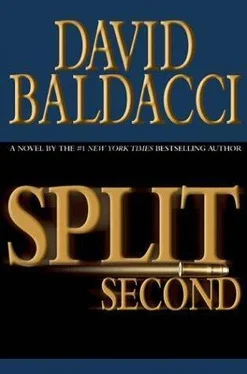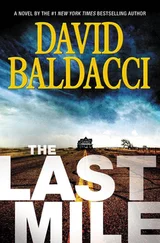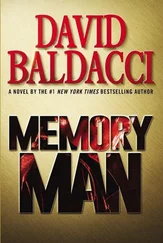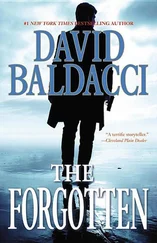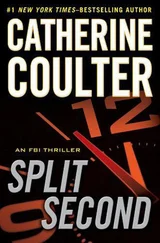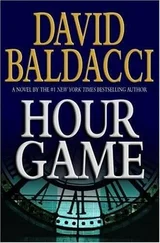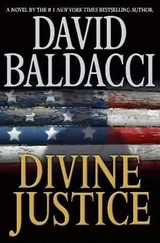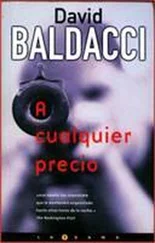"Like you said, love can make you do strange things. And it looks like whoever was behind this knew how you felt about Joan.That you wouldn't betray her. In effect, both your hands and Joan's were tied." She looked at him questioningly. "It's not a crime to care about someone, Sean."
"Sometimes it feels like it is. It's a little unsettling to have someone come back into your life who you thought was gone forever."
"Especially if what you thought eight years ago turned out to be wrong."
"I'm not in love with Joan," said King. "But I do care what happens to her. I want her back safe."
"We'll do all we can do."
"That still might not be enough," he said grimly, and then rose and headed up to the house.
As they were finishing up lunch, King's phone rang. When he answered, he looked puzzled and then said to Michelle, "It's for you. He says he's your father."
"Thanks. I gave him this number. I hope you don't mind. The cell reception is a little spotty around here."
"No problem." He handed the phone across to her.
Michelle and her father spoke for about five minutes. She wrote some information down on a sheet of paper, thanked her dad and hung up.
King was rinsing out the lunch dishes and stacking them in the dishwasher. "So what was that all about?"
"I told you most of my male family members are police officers. My father, the Nashville police chief, belongs to all the national fraternal police organizations, and is high up in a lot of them. I asked him to do a little digging on this D.C. incident. To see if he could find out anything about an officer being killed around 1974 during a protest."
King wiped his hands dry on a towel and came and stood next to her. "So what'd he come up with?"
"A name. Only one name, but it might lead us somewhere." Sheglanced at her notes. "Paul Summers was on the D.C. police force back then. He's retired now but lives in Manassas. My dad knows him, and he's willing to talk to us. Dad says Summers could have some information for us."
King pulled on his jacket. "Let's go."
As they were heading out, Michelle said, "Sean, I don't agree with your keeping what Joan did secret all these years, but I admire you for doing it. There's something to be said for loyalty."
"Really? I'm not sure I agree. In fact, sometimes loyalty really sucks."
Paul Summers lived in a thirty-year-old split-level rancher in Manassas, Virginia, that was being infringed on all sides by new housing developments. Summers answered the door dressed in jeans and a burgundy Redskins football T-shirt. They sat in the small living room. He offered them something to drink, but they declined. Summers looked to be around sixty-five or so, with fine white hair, a wide smile, freckled skin, big forearms and a bigger stomach.
"Damn, so you're Frank Maxwell's girl," he said to Michelle. "If I told you how much your father bragged about you at the national conventions, it'd make you blush redder than this T-shirt I'm wearing."
Michelle smiled. "Daddy's little girl. It does get embarrassing sometimes."
"But, hell, how many dads have a daughter like you? I'd be bragging too."
"She does make you feel kind of inferior," said King with an impish glance at Michelle. "But then you get to know her and realize she's actually human."
Summers took on a somber expression. "I been following this stuff about Bruno. It stinks. I worked with Secret Service before, lots of times. And the stories I heard about protectees doing crazy stuff and leaving the Service boys high and dry. You got screwed, Michelle, plain and simple."
"Thanks for saying that. My dad mentioned you might have some information that could help us?"
"That's right. I was sort of the unofficial police historian when I was on the force, and let me tell you, those were some exciting times. People think America's gone to hell these days? They should check out the sixties and seventies." As he was talking, he pulled out a file. "I got some stuff here I think might help." He put on a pair of reading glasses.
"In 1974 Watergate was tearing the country apart. Folks were going after Nixon with a vengeance."
"I guess some of those events got a little out of control," said King.
"Oh, yeah. The D.C. police force was pretty used to large-scale demonstrations by that time, but still you never know." He adjusted his glasses and read over his notes for a few moments. "The break-in at the Watergate happened in the summer of 1972. It was about a year later that the country found out about Nixon's tapes. He claimed executive privilege and wouldn't release them. After he fired the special prosecutor in October of 1973, things really started to snowball and folks started talking impeachment. In July of 1974 the Supreme Court ruled against Nixon with regard to the tapes and he resigned in August. But before the Court handed down its opinion-it was around May of '74-things got really hot in D.C. There was a huge protest planned along Pennsylvania Avenue with thousands of marchers.
"We had riot squads out, dozens of officers on horseback, the National Guard, hundreds of Secret Service agents, SWAT teams, even a damn tank; you know, the works. I'd been on the force ten years, had seen my share of riots, and I remember still being scared. I felt like I was in some third-world country and not the U.S. of A."
"And a police officer died?" said Michelle.
"No, a national guardsman," said Summers. "Found him in an alley with his head bashed in."
"And someone was arrested for it," said King. "But how couldthey have known for sure who did it? It sounded like chaos out there."
"Well, they did make an arrest and they were going to prosecute, but then everything just went away. I don't know why. I mean the National Guard kid was dead, no doubt about that, and somebody had killed him. The story made the papers, but then the Supreme Court ruled against the president and Nixon resigned in August of '74, and that dominated everything from that point on. People seemed to forget about the death of the national guardsman. The whole thing just faded away. After RFK and Martin Luther King, Nam and Watergate, I think the country was tired of it all."
King leaned forward. "Do you have the names of the people charged, arresting officers, prosecutors?"
"No, I'm sorry I don't. You're talking thirty years ago. And I wasn't involved in the case at all. I just heard about it afterwards. So I wouldn't recognize any names you might have in mind."
"How about the papers? You said there were stories?"
"Yeah, but I don't believe any of them named the parties charged. There was definitely something weird going on there. To tell the truth, the media didn't trust the government back then. Lot of unethical stuff going on. And I hate to say it, since I was a member of the force, but some of the men in blue did some stuff they shouldn't back then. They crossed the line sometimes, especially with the longhaired hippies coming to town. Some of my brethren didn't have a lot of patience for that. It was a real ‘us against them' mentality."
"And maybe something like that happened here; you said the charges just went away," said Michelle. "Maybe they'd been trumped up."
"Maybe. But I really don't know for sure."
"Okay," said King. "We appreciate your help."
Summers smiled. "You're about to appreciate it a little more." He held up a piece of paper. "I do have one name for you. Donald Holmgren."
"Who's that?" asked Michelle.
"Public defender back then. A lot of the protesters that day were really young, and half of them were spaced-out on stuff. It was like all the war protesters-hippies and people like that-had switched their focus to Nixon. So I'm thinking the odds are good that whoever got charged was one of them. If they had no money for a lawyer, they'd be initially represented by the P.D. office. Holmgren might be able to tell you some more. He's retired now too but he's living in Maryland. I haven't talked to him, but if you approach it right, he might open up to you."
Читать дальше
